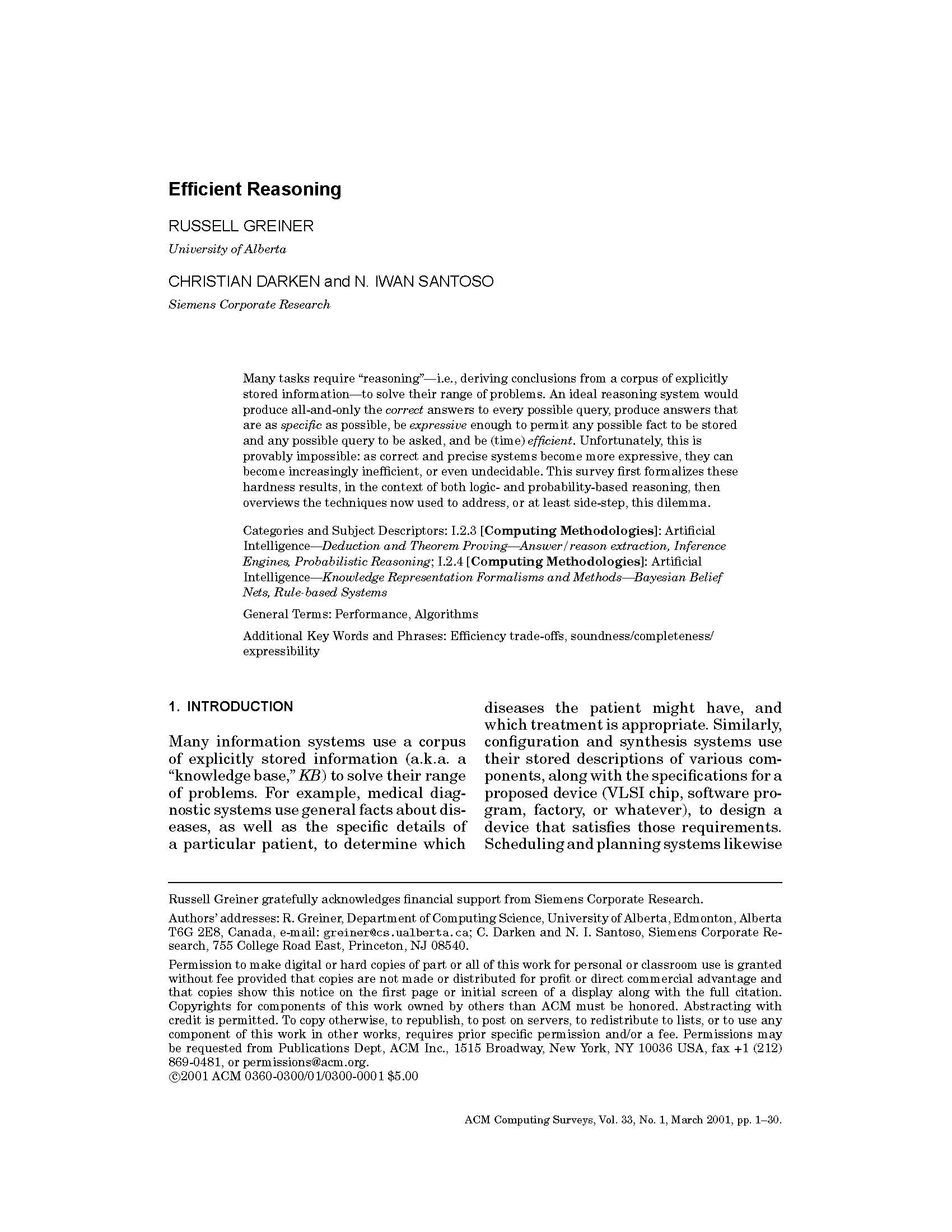Efficient reasoning
مقال من تأليف: Greiner, Russell ;
ملخص: Many tasks require “reasoning”—i.e., deriving conclusions from a corpus of explicitly stored information—to solve their range of problems. An ideal reasoning system would produce all-and-only the correct answers to every possible query, produce answers that are as specific as possible, be expressive enough to permit any possible fact to be stored and any possible query to be asked, and be (time) efficient. Unfortunately, this is provably impossible: as correct and precise systems become more expressive, they can become increasingly inefficient, or even undecidable. This survey first formalizes these hardness results, in the context of both logic- and probability-based reasoning, then overviews the techniques now used to address, or at least side-step, this dilemma. Categories and Subject Descriptors: I.2.3 [Computing Methodologies]: Artificial Intelligence—Deduction and Theorem Proving—Answer/reason extraction, Inference Engines, Probabilistic Reasoning; I.2.4 [Computing Methodologies]: Artificial Intelligence—Knowledge Representation Formalisms and Methods—Bayesian Belief Nets, Rule-based Systems
لغة:
إنجليزية
الفهرس العشري
621 .الفيزياء التطبيقية (الهندسة الكهربائية ، الهندسة المدنية ، الهندسة الميكانيكية ، الهندسة التطبيقية ، المبادئ الفيزيائية في الهندسة)
الموضوع
الإعلام الآلي
الكلمات الدالة:
Efficiency trade-offs
soundness/completeness/expressibility

